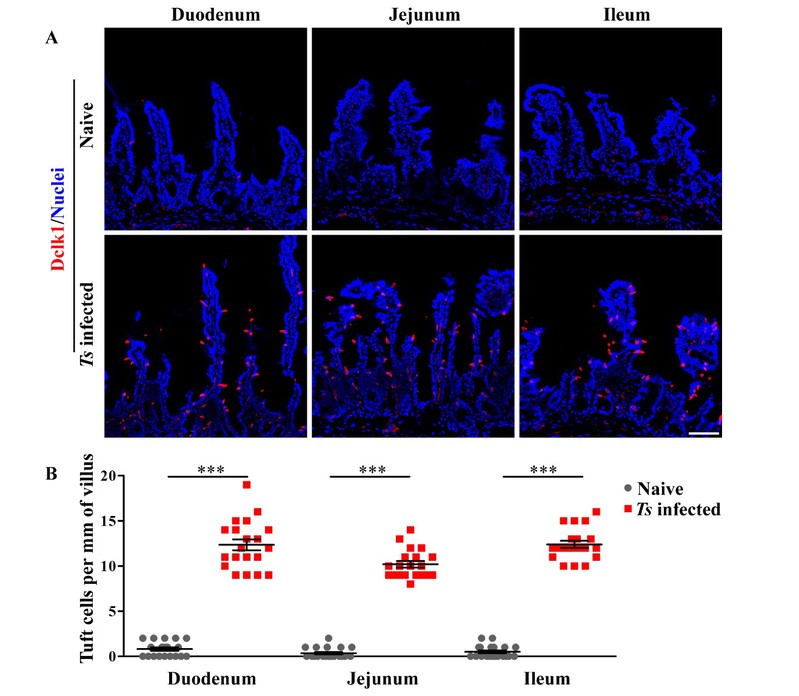Title: Infection by the parasitic helminth Trichinella spiralis activates a Tas2r-mediated signaling pathway in intestinal tuft cells
Xiao-Cui Luo, Zhen-Huang Chen, Jian-Bo Xue, Dong-Xiao Zhao, Chen Lu, Yi-Hong Li, Song-Min Li, Ya-Wen Du, Qun Liu, Ping Wang, Mingyuan Liu, and Liquan Huang
PNAS March 19, 2019 116 (12) 5564-5569; first published February 28, 2019 https://doi.org/10.1073/pnas.1812901116
Abstract
The parasitic helminth Trichinella spiralis, which poses a serious health risk to animals and humans, can be found worldwide. Recent findings indicate that a rare type of gut epithelial cell, tuft cells, can detect the helminth, triggering type 2 immune responses. However, the underlying molecular mechanisms remain to be fully understood. Here we show that both excretory–secretory products (E–S) and extract of T. spiralis can stimulate the release of the cytokine interleukin 25 (IL-25) from the mouse small intestinal villi and evoke calcium responses from tuft cells in the intestinal organoids, which can be blocked by a bitter-taste receptor inhibitor, allyl isothiocyanate. Heterologously expressed mouse Tas2r bitter-taste receptors, the expression of which is augmented during tuft-cell hyperplasia, can respond to the E–S and extract as well as to the bitter compound salicin whereas salicin in turn can induce IL-25 release from tuft cells. Furthermore, abolishment of the G-protein γ13 subunit, application of the inhibitors for G-protein αo/i, Gβγ subunits, and phospholipase Cβ2 dramatically reduces the IL-25 release. Finally, tuft cells are found to utilize the inositol triphosphate receptor type 2 (Ip3r2) to regulate cytosolic calcium and thus Trpm5 activity, while potentiation of Trpm5 by a sweet-tasting compound, stevioside, enhances tuft cell IL-25 release and hyperplasia in vivo. Taken together, T. spiralis infection activates a signaling pathway in intestinal tuft cells similar to that of taste-bud cells, but with some key differences, to initiate type 2 immunity.
Link:https://www.pnas.org/content/early/2019/02/27/1812901116






